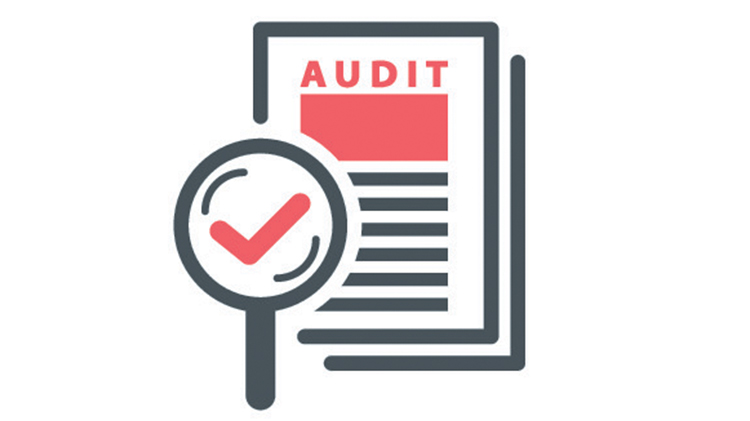Businesses often hire accountants to do their bookkeeping, prepare financial statements or file tax reports. Some of them also hire external auditors from accounting firms to get their financial statements audited.
While some business owners get their financial statements audited by choice, others are getting an audit due to various external requirements. So when do you need an audit? This is what we will explore in this article.

What Is An Audit?
An audit is performed by independent certified public accountants (“CPAs”). When performing an audit, CPAs inspect the numbers in the financial statements along with the disclosures in order to ultimately opine on whether the information fairly presents the situation of a company.
The ultimate goal of an audit is to obtain the auditor’s report containing their opinion and include that audit report in the financial statements. The audit opinion provides comfort to the readers of the financial statements.
Since an independent third party has examined the accounts of a company and provided an opinion, it increases the credibility of the information.
Regulations within the financial world are increasing year on year due to the many historical frauds committed by various companies. As such, audits have become more and more popular and requested by different regulators to ensure the protection of consumers and investors.
Read More:
Does a Business Need an Accountant? It Depends on 3 Things
When Do You Need An Audit?

Understanding what an audit consists of and its purpose is great but how do you know when you need an audit for your business? We will explore 7 examples where audits are needed.
- When a business needs a loan from a bank or third-party lenders, they usually require audited financial statements from the company.
The main reason for lenders to request this is to ensure the borrower is in good financial health and has guarantees (in the form of assets) in case of a loan default.
The bank or the lender will, of course, protect themselves first and foremost. As such, requesting audited financial statements from the borrower gives them comfort.
- In the normal course of business of a company, buying from suppliers using credit (meaning you get the supplies now and pay later) is quite common.
Companies can have various internal policies on the circumstances to extend credit but generally speaking, if the credit extended is considerable, the supplier can request audited financial statements before extending the credit.
Similar to lenders, suppliers need assurance that they are extending credit to a company that is financially healthy to avoid any potential losses. Audited financial statements can give them that assurance.
- Public companies (meaning companies traded on stock exchanges) have an obligation to have their financial statements audited. This is a requirement from regulators around the world, no matter which stock exchange the company trades on.
The main purpose of this rule is to protect public investors from fraud and misleading information.
- When a company is looking for external investors, an audit is usually required by those investors.
To protect the interest of the investors, audited financial statements will provide comfort that the company they are investing in is not fraudulent and performance is reflected fairly.
- A transaction involving the purchase or the sale of a company can involve an audit for due diligence purposes. For both the buyer and the seller, it would be smart to get an audit done.
For the buyer, it provides assurance that the entity is financially healthy and accounts are respecting accounting standards. For the seller, having an audit backing the performance and accounts of the company is a solid selling point.
- If a company is receiving public funds from the government, an audit will most likely be needed or even requested by the government body.
This is to ensure a company using public funding is making good and appropriate use of the money received. It’s often the case of not-for-profit entities.
- As a business owner, you might simply want an audit done on your company to ensure good integrity and accuracy of your accounts.
Audits can help in discouraging fraud within the company and also help you to identify deficiencies and ways of improving your internal controls.
Read More:
Audited Financial Statements for Small Business| A Must Have?
Are There Alternatives to Audit? (Reviews & Comps)
Audited financial statements occupy an important role in the financial world. They provide assurance on the fairness of the information presented by a company in its financial statements.
However, having an audit done can be quite expensive since it requires extensive procedures done by independent auditors.
Fortunately, there is an alternative to audit, called a review engagement, although it provides less assurance. Depending on the need and preference of the reader of the financial statements, some will be inclined to accept a review rather than an audit.
The review engagement provides less assurance than an audit because the procedures performed by the independent auditor are a lot less extensive versus an audit.
Procedures in a review generally consist of verbal inquiries to confirm information in the financial statements and analytical procedures on the accounts of the company.
In an audit, auditors will perform testing on source documents and internal controls, physical inspections, external confirmations and so on.
Compilations: What Are They?
You might have heard about compilations too. Unlike audits and reviews, compilations provide no assurance on the information presented in the financial statements at all.
Compilations are simply financial statements put together by an accountant using the information provided by management. The accountant is not doing any procedures to confirm the accuracy of the underlying information. Compilations are therefore not an alternative to audit.
Between audit and review, it will ultimately depend on the user of the financial statements which option is more suitable.
Recapping on When an Audit is Needed

Audits provide assurance on the information presented in the financial statements of a company. Various reasons will require an entity to have audited financial statements. We have seen 7 popular examples of when an audit is needed.
- For lenders when a company needs a loan.
- For suppliers when a company is buying a substantial amount using credit.
- A public company.
- A company is looking for external funding from external investors.
- A purchase/sale transaction involving the company.
- When a company is receiving public funding from the government.
- For the simple reason to ensure integrity and accuracy of company accounts to decrease fraud possibilities.
Final Thoughts on Audits and When it’s Needed
Independent auditors charge high fees on audits but they are expensive for a reason. Audits provide assurance that the information presented in the financial statements are fair.
Various reasons can motivate a company to have an audit done and regardless of the reason, an audit can only be beneficial for a company. If fees are an issue, there is an alternative to audit, which is the review engagement but it provides less assurance than audits do.
Ultimately, the recipient of the financial statements has to make the decision on choosing the report that makes them most comfortable.



